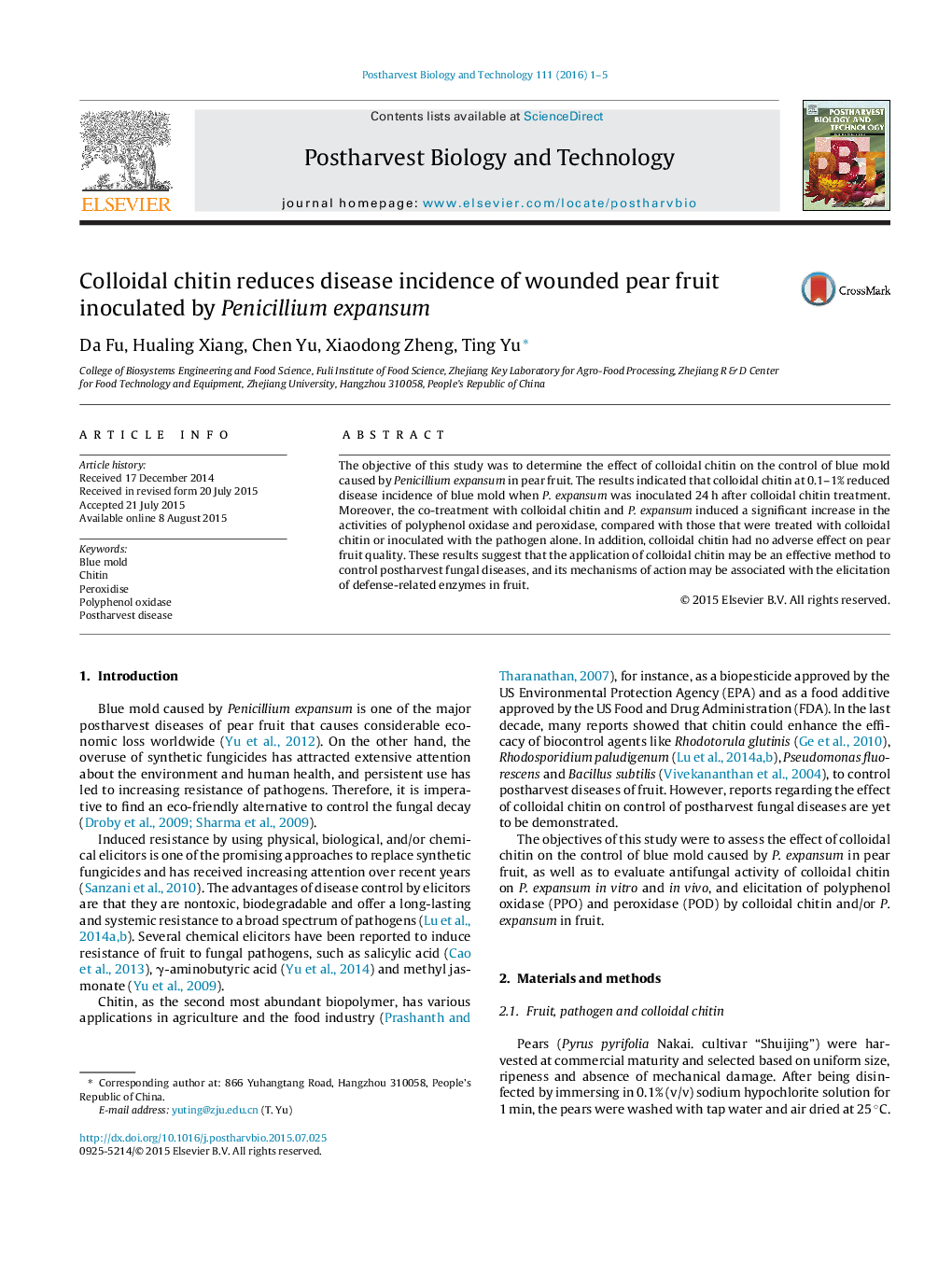| Article ID | Journal | Published Year | Pages | File Type |
|---|---|---|---|---|
| 4517848 | Postharvest Biology and Technology | 2016 | 5 Pages |
•0.1–1% Chitin applied 24 h prior inhibited blue mold from P. expansum inoculation.•Chitin at 0.1% or above prevented spore germination of P. expansum in vitro.•Chitin failed to inhibit P. expansum germination in vivo directly.•Application of chitin and pathogen induced activities of PPO and POD.•Chitin had no adverse effect on pear quality.
The objective of this study was to determine the effect of colloidal chitin on the control of blue mold caused by Penicillium expansum in pear fruit. The results indicated that colloidal chitin at 0.1–1% reduced disease incidence of blue mold when P. expansum was inoculated 24 h after colloidal chitin treatment. Moreover, the co-treatment with colloidal chitin and P. expansum induced a significant increase in the activities of polyphenol oxidase and peroxidase, compared with those that were treated with colloidal chitin or inoculated with the pathogen alone. In addition, colloidal chitin had no adverse effect on pear fruit quality. These results suggest that the application of colloidal chitin may be an effective method to control postharvest fungal diseases, and its mechanisms of action may be associated with the elicitation of defense-related enzymes in fruit.
